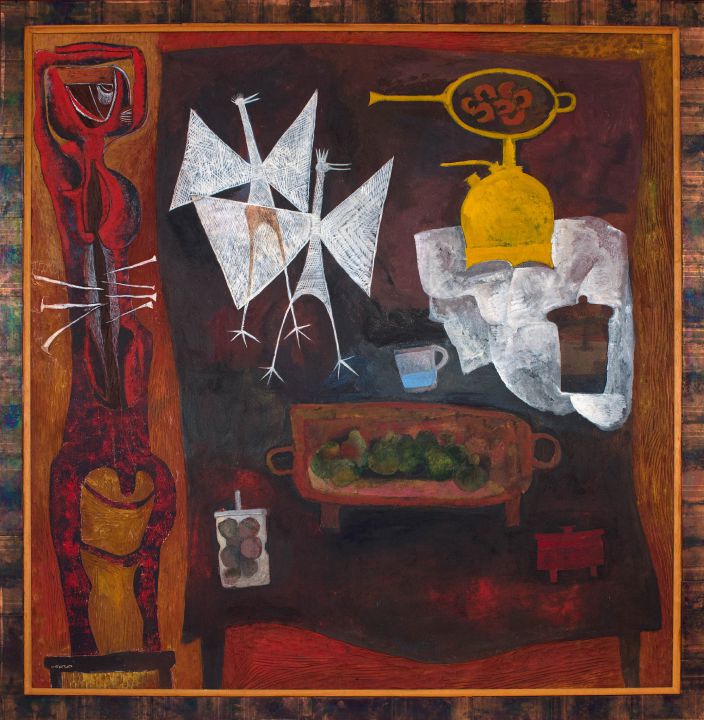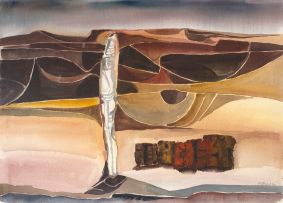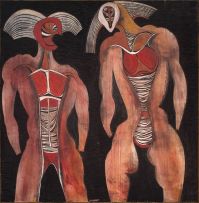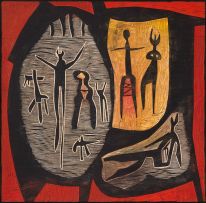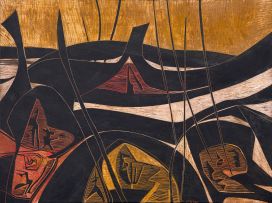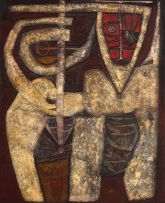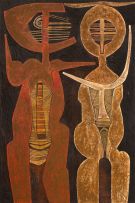Important South African and International Art, Decorative Arts & Jewellery
Live Auction, 5 March 2018
Art: Evening Sale
Incl. Buyer's Premium & VAT
About this Item
signed
Notes
Still Life with Wire Sculptures is the first in a series that Cecil Skotnes produced for his exhibition Still Life and Ancestry at the Goodman Gallery in Johannesburg in 1993 followed by a showing at the South African Association of Arts, Cape Town in 1994. Two of these remarkable works were sold at Strauss & Co's March 2010 sale for R779 800 and R1 225 400 respectively, the latter a record price for Skotnes at that time.
Here a distinctly African feast is laid out on a table that stretches across three quarters of the format. What could be more redolent of a South African celebration than a pan of Mopani worms? At the bottom right is a red pot resembling a potjie while arrayed to the left is a Zulu wooden platter with pears and figs and what could be a bottle of olives, all suggestive of a sensual and delicious communal feast. It is clear that Skotnes had a way of making local lekker without resorting to the banal.
Two white cranes appear to join the feast. The cranes' beauty and their spectacular mating dances have made them highly symbolic birds in many cultures with records dating back to ancient times. The Blue Crane or Grus paradise, also known as the Paradise Crane, is a magnificent creature worthy of being South Africa's national bird. Here Skotnes celebrates local culture by including wire sculptures of these national symbols. According to the artist, this is the very first instance in which he included representations of sculpture in his works.1
To the left is an African sculpture that draws on the nkisi nkondi, carved figures produced by the Kongo people of Zaire during the late 19th and early 20th centuries. These sculptures were used for protecting the village, curing illnesses, settling disputes, sealing agreements and vanquishing enemies. Their power derived from the ritual substances such as herbs, animal bones, fur, and seeds which were placed in a cavity cut into the figure's head or stomach. Nails driven into the figure represented the taking of an oath, the witnessing of an agreement, or some other occasion when the power of the figure was invoked.2
In a thoroughly innovative approach to the still-life genre, Skotnes brings together cultural and social aspects of both his European and African heritage.
1. As told to the previous owners.
2. See http://www.artsconnected.org/artsnetmn/whatsart/kongo.html
